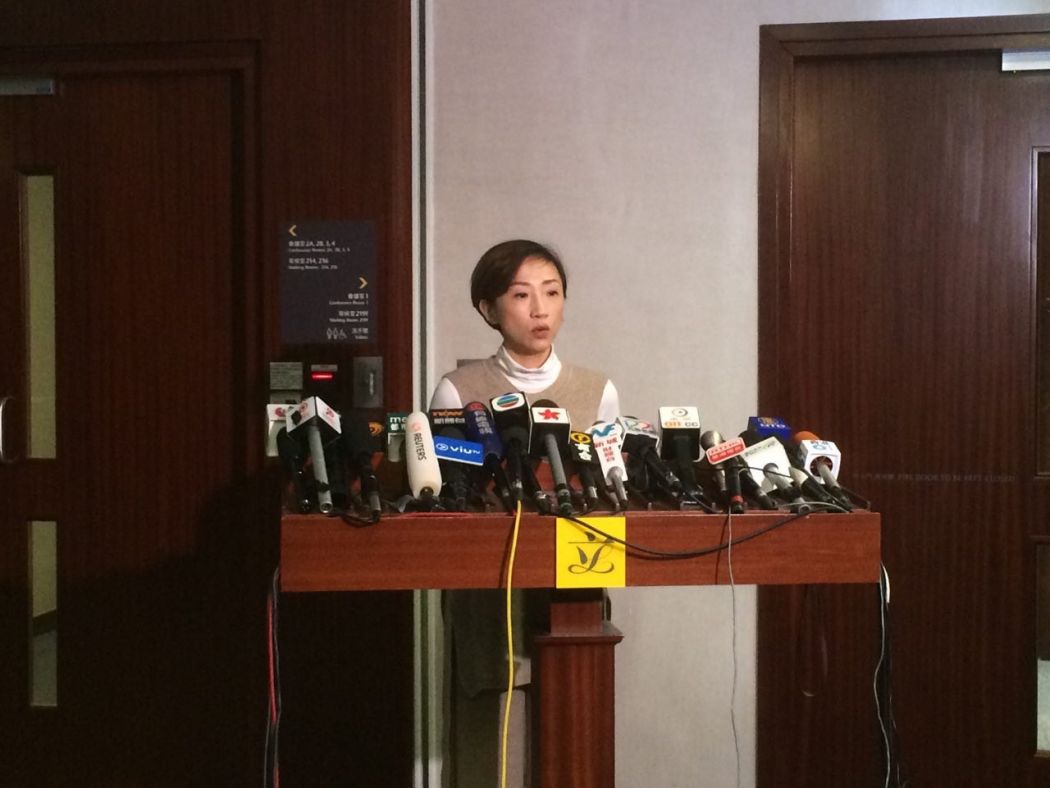Hong Kong democrats have said the Express Rail Link’s joint checkpoint arrangement is “the most serious violation” of the city’s Basic Law since the 1997 Handover to China.
“The decision reveals the central government’s full control over Hong Kong, effectively stripping the executive, judicial and legislative branches of their powers,” said Civic Party lawmaker Tanya Chan on Wednesday. Chan leads an alliance of civil society groups against the mechanism.

The remarks came after China’s top legislature – the Standing Committee of the National People’s Congress (NPCSC) – approved the plan following a unanimous vote and months of controversy. Hong Kong will effectively give up its jurisdiction across a quarter of the new West Kowloon terminus, where immigration procedures will be performed by mainland law enforcement agents. The station is set to open next year.
Pro-democracy groups and scholars have long voiced concern over potential violations of the Basic Law. Article 18 of the mini-constitution stipulates that Chinese laws cannot be implemented in Hong Kong except those listed in Annex III, such as the national flag and emblem laws.
On Wednesday, the NPCSC said in an explanatory document that there is no issue of the Basic Law being contravened, because the mainland section of the West Kowloon terminal will be under China’s jurisdiction, where the Basic Law will not apply.
NPCSC Deputy Secretary General and Basic Law Committee Chair Li Fei told reporters on Wednesday that NPCSC decisions are final and “cannot be questioned.”
‘Death of One Country, Two Systems’
But pro-democracy lawmakers said Beijing’s explanation lacked merit: “Basically, Li Fei meant that if he said there is no contravention of the Basic Law, then there is no issue of contravention,” Chan said.
Calling the arrangement “the most serious violation” of the Basic Law, the lawmaker said: “The promise that ‘Hongkongers can rule Hong Kong with a high degree of autonomy’ has become ‘the NPCSC rules Hong Kong, which has zero degree of autonomy.’”

Accountancy sector lawmaker Kenneth Leung said: “No wonder the Hong Kong and Beijing governments had been avoiding the question on how the joint checkpoint arrangement may be justified – it is because the plan does not have any legal basis.”
Democratic Party leader Wu Chi-wai also criticised Li: “He suggested interpreting the Basic Law from the Chinese legal perspective – this undoubtedly distorts the common understanding of the Basic Law among Hongkongers and the international community,” he said in a statement.
“If the central government no longer exercises self-restraint and continues to distort Basic Law provisions, eventually Hong Kong people and the world will lose confidence in the One Country, Two Systems policy.”

Civic Party lawmaker Kwok Ka-ki said: “This marked the death of the One Country, Two Systems policy. History will remember today. It will also remember how the Lam administration pushed for Chinese laws to be applied in West Kowloon.”
The pro-democracy Demosisto party demanded that the authorities halt the plan until all legal concerns had been resolved.
Last month, Chief Executive Carrie Lam signed an an agreement over the mechanism with the Guangdong government. Following Wednesday’s decision, the Legislative Council is expected to begin the process of making the decision part of Hong Kong’s law next year.
Although the local government has been criticised for failing to consult the public over the matter, Li Fei said Wednesday that opposition views had already been taken into account during the NPCSC meeting.
He expressed optimism that the decision will be enacted through local legislation. “If such a wonderful thing is not passed in Hong Kong, something must be wrong with their brains,” he said.
Pro-democracy groups will hold a protest outside the West Kowloon terminal on Thursday at 1pm.
